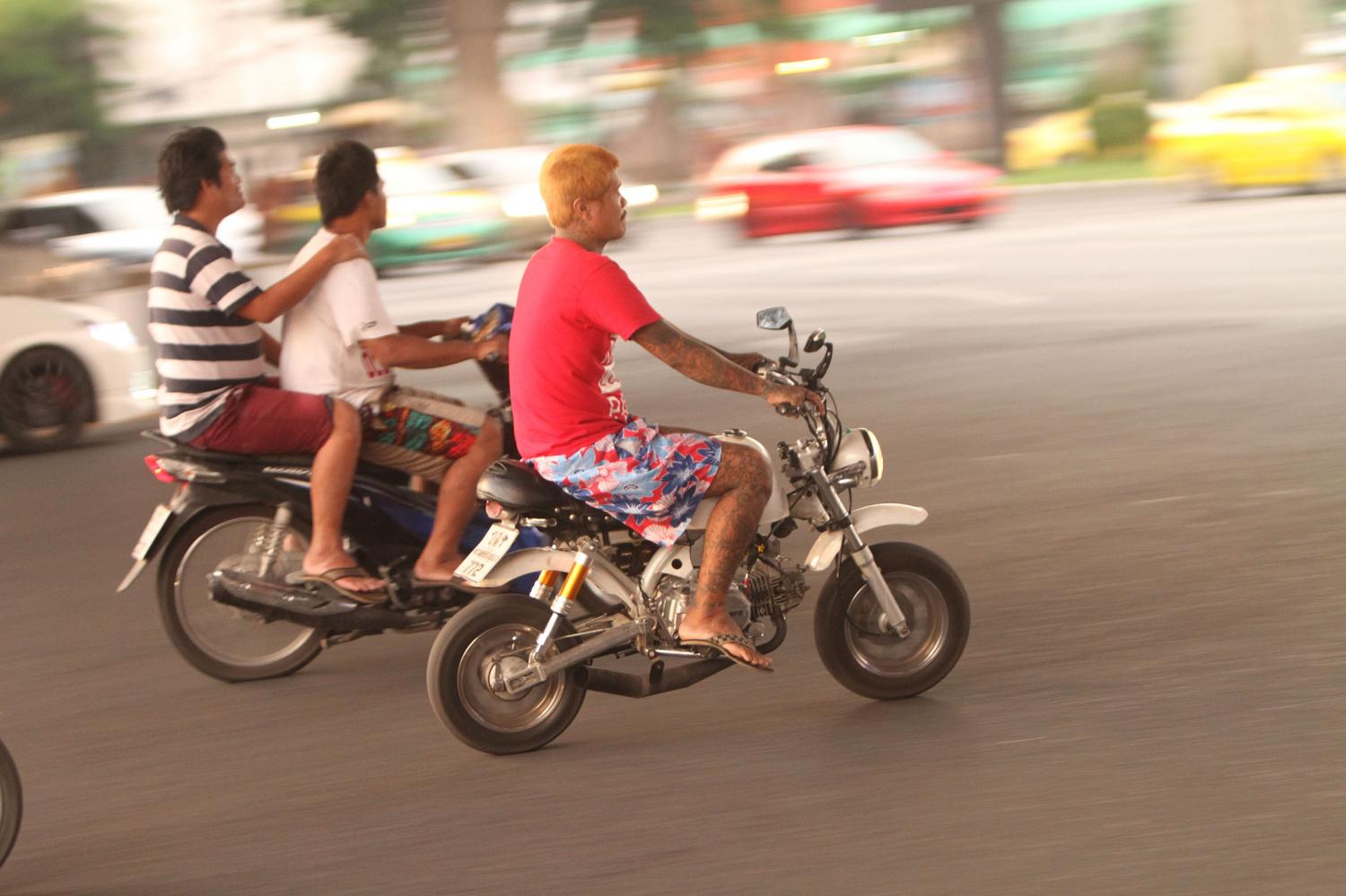
Law enforcement is not enough to deal with street motorcycle racers, criminologists say, who are urging for prosecution against motorcycle shops and garages that modify motorcycle engines for racing purposes.
They shared their views after the Royal Thai Police led by assistant national police chief Pol Lt Gen Damrongsak Kittiprapas last Tuesday issued a stern warning against dek waen motorbike riders who have returned to take over the roads of Bangkok and some provinces after the government lifted the night-time curfew last Sunday.
Pol Lt Gen Damrongsak came out a day after Prime Minister Prayut Chan-o-cha said the government would reimpose the night-time curfew if people failed to cooperate with Covid-19 control measures.
Gen Prayut's warning followed reports that young motorcyclists, or dek waen, were gathering for illegal street races last Sunday night shortly after the curfew was lifted.
Deputy Rector of Rangsit University, Pol Lt Col Kritsanapong Phutrakul, who chairs the Faculty of Criminology and Justice Administration, said the problem of street racing is caused by social factors.
"Police arrests do not solve the problem at its root cause so all parties should work together to eradicate street racing,'' Pol Lt Col Kritsanapong said.
He suggested motorcycle modification garages should be inspected and their owners arrested in parallel with the capture of the racers themselves. The government also needs to figure out what steps it should take after arresting these young racers. They might return to the streets after being are released, he said.
He said the government should also educate parents when their children buy a motorcycle.
Sunee Kanyajij, from the criminology programme of the Faculty of Social Sciences and Humanities, Mahidol University, said some epidemiology principles could be adopted to tackle street racing.
Ms Sunee said assigning different holidays to different schools can prevent students from gathering and racing on the streets.
According to the criminologist, the government needs to impose measures to better control motorcycle trading. Research shows that over 60% of motorcycles bought from shops have been used by young racers to race on the streets, leading to many other problems.
"The problem of street racing must be solved at the policy level,'' said Ms Sunee.
Wuttichai Phumsanguan, a provincial public prosecutor attached to the Office of the Attorney-General, Department of Special Litigation for Juvenile and Family Cases 6, said the department might abandon criminal prosecutions against young racers in favour of restorative justice approach.
Under this system, minors will be diverted from the justice system. Prosecutors will draw up rehabilitation plans for young racers and assessing if they fulfil the requirements.
"If they do so and prove to the attorney that they have really improved, the prosecutors will not indict them,'' said Mr Wutthichai.
The police's plan to thwart street racing consists of four phases. The first phase is when police gather data and intelligence about those youths who tend to be involved in street racing. The second phase is complaint handling and street patrols.
The third is data analysis for setting up checkpoints in areas where street racing is popular. The fourth phase introduces measures to monitor street racers and change their behaviour.